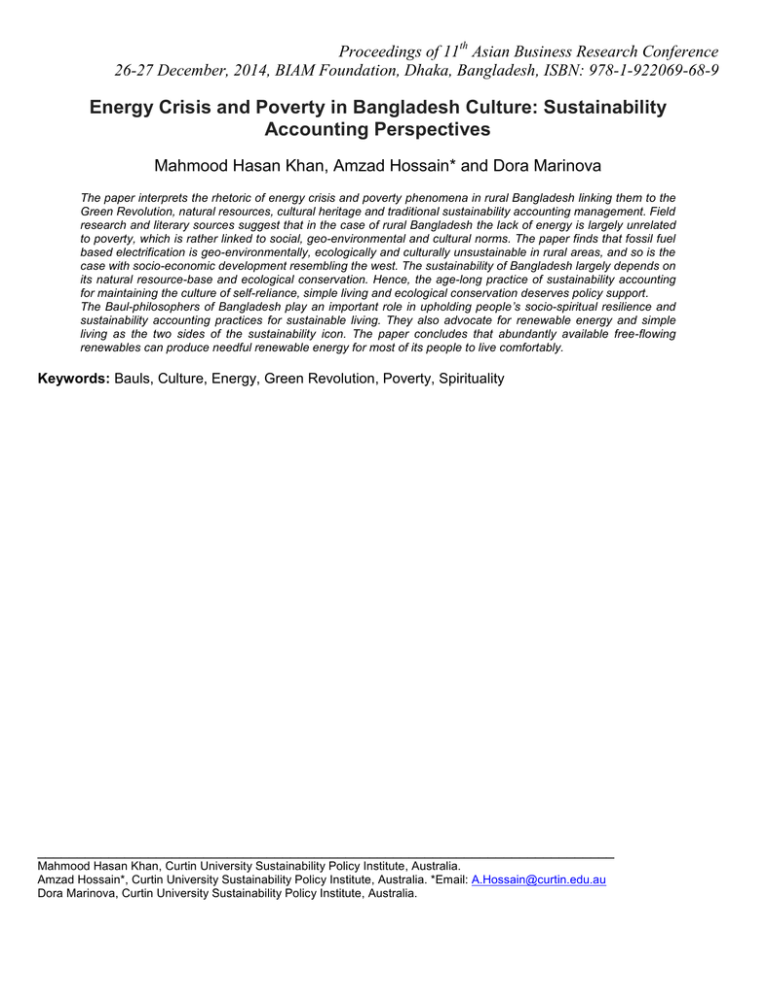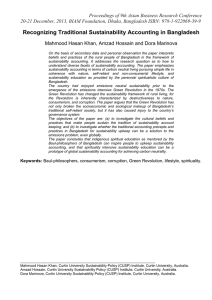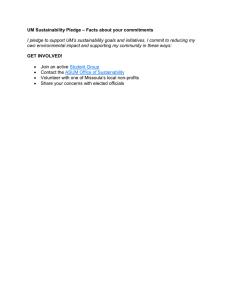Proceedings of 11 Asian Business Research Conference
advertisement

Proceedings of 11th Asian Business Research Conference 26-27 December, 2014, BIAM Foundation, Dhaka, Bangladesh, ISBN: 978-1-922069-68-9 Energy Crisis and Poverty in Bangladesh Culture: Sustainability Accounting Perspectives Mahmood Hasan Khan, Amzad Hossain* and Dora Marinova The paper interprets the rhetoric of energy crisis and poverty phenomena in rural Bangladesh linking them to the Green Revolution, natural resources, cultural heritage and traditional sustainability accounting management. Field research and literary sources suggest that in the case of rural Bangladesh the lack of energy is largely unrelated to poverty, which is rather linked to social, geo-environmental and cultural norms. The paper finds that fossil fuel based electrification is geo-environmentally, ecologically and culturally unsustainable in rural areas, and so is the case with socio-economic development resembling the west. The sustainability of Bangladesh largely depends on its natural resource-base and ecological conservation. Hence, the age-long practice of sustainability accounting for maintaining the culture of self-reliance, simple living and ecological conservation deserves policy support. The Baul-philosophers of Bangladesh play an important role in upholding people’s socio-spiritual resilience and sustainability accounting practices for sustainable living. They also advocate for renewable energy and simple living as the two sides of the sustainability icon. The paper concludes that abundantly available free-flowing renewables can produce needful renewable energy for most of its people to live comfortably. Keywords: Bauls, Culture, Energy, Green Revolution, Poverty, Spirituality _________________________________________________________________________ Mahmood Hasan Khan, Curtin University Sustainability Policy Institute, Australia. Amzad Hossain*, Curtin University Sustainability Policy Institute, Australia. *Email: A.Hossain@curtin.edu.au Dora Marinova, Curtin University Sustainability Policy Institute, Australia.






